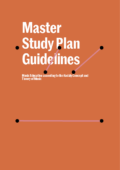“Culture cannot be taken over like an apartment, furniture or clothing.
Each generation has to study it and experience it afresh.” – Zoltán Kodály
- a well-trained ear – listening and singing skills
- a well-trained mind – musical understanding through music making and musicianship skills development
- a well-trained heart – emotional development and social skills
- a well-trained hand – musical performance skills
These four points are the most important aspects of a person’s musical and personal development as summed up by Zoltán Kodály in his article Who is a good musician? That summary has been adopted as a mission statement by teachers and students of the Kodály method all around the world. They are aspects that are important not only for professional musicians, but also for amateurs, music lovers and listeners seeking to understand the language of music. The Kodály method is one of the principal reasons for the relatively high standard of Hungarian choirs.
In the internationally oriented Master programme in Music Education according to the Kodály method (which is taught in English) you will be trained as a specialist in teaching music according to the Kodály concept. You will learn to apply knowledge and practical skills in teaching music, both instrumental and singing, in schools and elsewhere.
The programme consists of three related areas of study: method, musicianship skills and research. In your research you will translate the Kodály concept to your own musicianship and teaching. An important aspect of music teaching according to the Kodály concept is the close relationship between musicianship and art, between methodology and musical content and between methodological principles and didactic practice. Making music, understanding music and the musical learning process are one and the same.
During the course you will follow master classes given by international guest lecturers. You may also be able to spend a period on an Erasmus exchange programme as part of the course.
Research
We believe it is important that you develop into a self-sustaining musician who can handle the ever-changing professional practice well. For this reason you are required to do research on a topic of your choice during the master's programme. You will be assisted by a research supervisor, follow an introductory course about doing (artistic) research and an elective in your first year. You will participate in a Master circle, a 'peer-to-peer ' group consisting of fellow students and a circle leader. At the end of your master’s programme you are required to present the results of your research. Upon registration to the master's programme, you must write a study plan (Master Plan), in which you describe how you want to compile your master’s programme.
Teachers
Specifications
Language
English
Duur
2 years
Degree
Master of Music
Tuition fee
Check 'Tuition fees'
Department coordinator
Jasper Grijpink
Department head
Suzanne Konings
Impressions
Related studies
Music Education Training Course Muziek als Vak
This training course will be available for those who wish to improve their skills and knowledge about teaching music to children.
The course will be organised by the Royal Conservatoire in The Hague. Lessons will take place between September and June on one Saturday per month.
This course is for anyone who may have an interest in music-education. In particular, the following groups of people may benefit:
School class teachers with an interest in teaching music
Musicians with an interest in education
Music teachers who are looking to further their training















